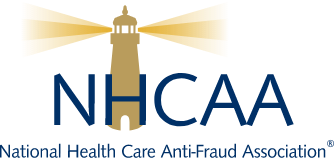Consumer Information
What is health care fraud?
Health care fraud is an intentional deception or misrepresentation that the individual or entity makes knowing that the misrepresentation could result in some unauthorized benefit to the individual, or the entity or to some other party.
The most common kind of fraud involves a false statement, misrepresentation or deliberate omission that is critical to the determination of benefits payable. Fraudulent activities are almost invariably criminal, although the specific nature or degree of the criminal acts may vary from state to state.
The variety of fraudulent reimbursement and billing practices in the health care area is potentially infinite. The most common fraudulent acts include, but are not limited to:
- Billing for services, procedures and/or supplies that were never provided or performed
- Intentionally misrepresenting any of the following, for purposes of obtaining a payment-or a greater payment-to which one is not entitled:
- The nature of services, procedures and/or supplies provided or performed;
- The dates on which services and/or treatments were rendered;
- The medical record of service and/or treatment provided;
- The condition treated or the diagnosis made;
- The charges for services, procedures and/or supplies provided or performed;
- The identity of the provider or the recipient of services, procedures and/or supplies.
- The deliberate performance of medically unnecessary services for the purpose of financial gain.
How big is the problem?
The United States spends over $2.27 trillion on health care every year. Of that amount, NHCAA estimates that tens of billions of dollars are lost to health care fraud. This loss directly impacts patients, taxpayers and government through higher health care costs, insurance premiums and taxes. Additionally, health care fraud often hurts patients who may be subjected to unnecessary or unsafe procedures or who may be the victims of identity theft.
State Insurance Fraud
Many states have created specific insurance fraud statutes. Some of these statutes apply to all lines of insurance. Others may apply only to workers compensation or health care. These statutes typically make it unlawful, among other things, for any person to present a false or misleading statement in support of a claim for payment pursuant to an insurance policy.
Fraud Awareness
Offers of “free” medical treatments or consultations often sound appealing and legitimate. They may come in advertising, a telephone solicitation, even at your front door.
Be careful. Sometimes they are a lure used by scam artists to obtain your patient identification and insurance information to commit health insurance fraud. Over $54 billion is stolen every year in scams designed to stick us and our insurance companies with fraudulent and illegal medical charges. We all pay in the form of higher health insurance premiums. Our medical histories can be permanently altered when diseases or injuries we’ve never had are falsely entered on our records to justify the illegal charges.
How can you stop it?
- Read your policy and benefits statements
- Read your policy, Explanation of Benefits (EOB) statements and any paperwork you receive from your insurance company. Make sure you actually received the treatments for which your insurance was charged, and question suspicious expenses.
Beware of “free” offers.
Offers of “free” services are often fraud schemes designed to bill you and your insurance company illegally for thousands of dollars of treatments you never received.
Protect your health insurance card like your credit card.
In the wrong hands, a health insurance card is a license to steal. Don’t give policy numbers or other identifying information to door-to-door salesmen or telephone solicitors.



